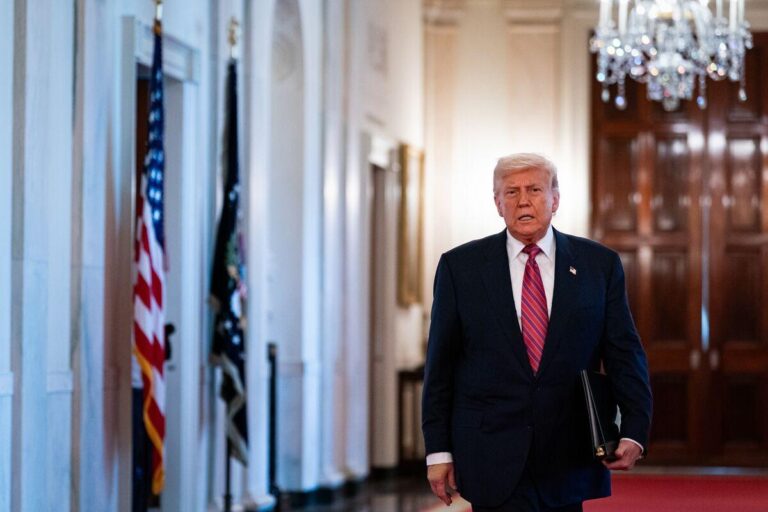San Antonio Faces Uncertainty Amid U.S. Exit from UNESCO: Cultural and Educational Impacts Explored
San AntonioŌĆÖs Cultural Heritage at a Crossroads Following U.S. UNESCO Withdrawal
The decision by the Trump administration to pull the United States out of UNESCO has ignited widespread debate, particularly in cities like San Antonio that have deep cultural and educational connections aligned with UNESCOŌĆÖs objectives. San AntonioŌĆÖs historic missions, which are designated UNESCO World Heritage Sites, depend heavily on international collaboration for preservation and promotion. Local leaders are now evaluating how this withdrawal might disrupt funding streams, global partnerships, and the cityŌĆÖs ability to showcase its rich cultural legacy on the world stage.
Concerns center on several critical areas:
- Grant Funding: Potential reduction in access to UNESCO-backed financial support for cultural preservation and community programs.
- International Collaborations: Possible limitations on joint projects with other UNESCO member cities and countries focused on heritage conservation.
- Global Standing: Risk of diminished recognition that could affect tourism and educational outreach tied to San AntonioŌĆÖs historic sites.
Despite these challenges, city officials remain hopeful, emphasizing the role of local funding initiatives and private partnerships to sustain momentum. Plans are underway to convene public forums aimed at developing strategies that reduce reliance on UNESCO while continuing to celebrate and protect San AntonioŌĆÖs unique cultural assets.
Evaluating Funding and Partnership Risks for San AntonioŌĆÖs Cultural Programs
San AntonioŌĆÖs municipal leaders are carefully analyzing the potential fallout from the U.S. exit from UNESCO, particularly regarding projects that currently benefit from international cooperation. While direct federal funding linked to UNESCO is limited, the broader implications for collaborative efforts could be substantial. The uncertainty surrounding national support may affect funding for heritage tourism, educational exchanges, and preservation initiatives.
Key challenges identified include:
- Decreased assistance in securing grants that require UNESCO endorsement.
- Potential weakening of cultural and historical ties that enhance San AntonioŌĆÖs international profile.
- Complications in coordinating with global organizations on conservation and educational programs.
To counter these risks, local authorities are actively pursuing alternative funding sources, including private foundations and regional partnerships. Additionally, efforts are being made to optimize existing state and federal resources. Nonetheless, the disruption to established international channels presents a significant obstacle for sustaining long-term cultural and educational projects.
Impact Assessment: How Key San Antonio Initiatives Could Be Affected
| Initiative | UNESCOŌĆÖs Current Role | Potential Consequences |
|---|---|---|
| Preservation of San Antonio Missions | World Heritage designation and grant support | Loss of funding; increased reliance on local resources |
| Community Cultural Festivals | International exposure and financial backing | Budget reductions; smaller-scale events |
| Educational Exchange Programs | Networking and scholarships through UNESCO | Fewer scholarships; limited global partnerships |
Expert Perspectives on the Long-Term Effects for Heritage Conservation
Specialists in cultural heritage preservation express serious concerns about the long-term ramifications of the U.S. withdrawal from UNESCO. Dr. Elena Ramirez, a noted expert in historic site conservation, explains, ŌĆ£UNESCOŌĆÖs involvement extends beyond symbolic recognition; it provides essential funding and technical expertise that are vital for ongoing restoration projects.ŌĆØ Without this support, San Antonio may face difficulties maintaining its leadership in preserving diverse cultural narratives, particularly those reflecting Hispanic and indigenous histories.
Experts highlight several potential consequences:
- Reduced international collaboration: Loss of access to global networks and expert workshops.
- Funding limitations: Decreased eligibility for grants linked to UNESCO affiliation.
- Decline in cultural tourism: Possible drop in visitors attracted by UNESCO World Heritage branding.
| Area of Impact | Expected Outcome |
|---|---|
| Grant Accessibility | Reduction in available funding |
| Global Networks | Limited opportunities for expert exchange |
| Community Engagement | Fewer public participation initiatives |
Strategies to Sustain and Expand International Partnerships
In response to these challenges, San AntonioŌĆÖs officials advocate for broadening the cityŌĆÖs international collaboration portfolio to avoid overdependence on any single organization like UNESCO. Experts recommend pursuing alternative global platforms and bilateral agreements that align with the cityŌĆÖs cultural and educational goals. Maintaining open communication channels with international partners, regardless of political shifts, is essential to preserving San AntonioŌĆÖs global presence and access to resources.
Strengthening local capabilities is equally important. Investing in homegrown cultural programs and enhancing international outreach can help buffer the city against potential disruptions. Recommended actions include:
- Expanding digital engagement: Utilizing virtual platforms to sustain global connections despite travel limitations.
- Fostering cross-sector collaborations: Encouraging partnerships among academic institutions, private enterprises, and community groups.
- Promoting cultural diplomacy: Organizing targeted events and exchanges to build goodwill beyond formal agreements.
| Approach | Advantage |
|---|---|
| Diversifying Global Platforms | Minimizes risk of losing key partnerships |
| Building Local Capacity | Increases resilience and autonomy |
| Enhancing Digital Communication | Ensures continuous engagement despite restrictions |
Conclusion: Navigating Uncertainty While Preserving San AntonioŌĆÖs Cultural Legacy
As the United StatesŌĆÖ potential exit from UNESCO unfolds, San AntonioŌĆÖs leaders remain vigilant about the possible repercussions for the cityŌĆÖs cultural and educational sectors. Although the full extent of the impact is still emerging, there is a clear consensus on the necessity of sustaining robust international partnerships. By proactively adapting strategies and exploring new avenues for collaboration and funding, San Antonio aims to safeguard its heritage and continue its role as a vibrant cultural hub on the global stage.




